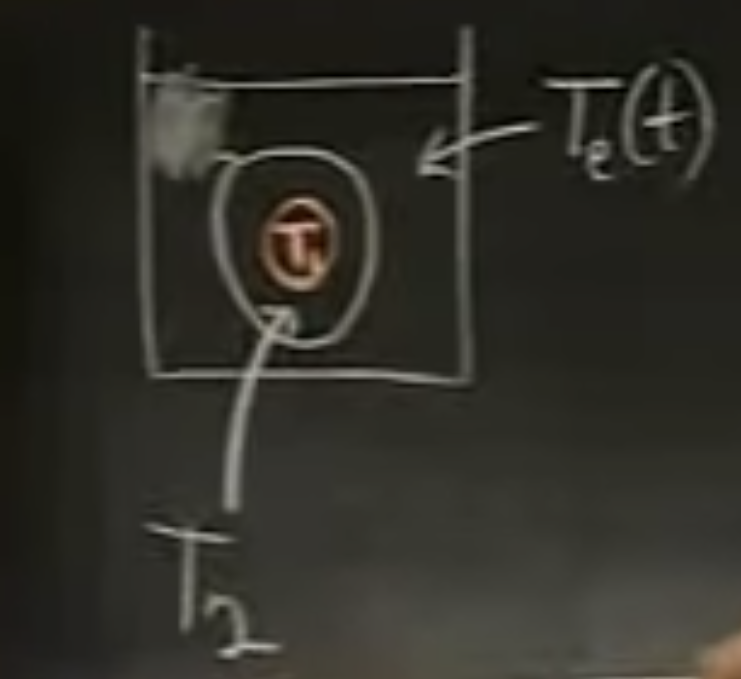Introduction to First-order Systems of ODEs
June 13, 2019
First order systems, as the name suggests, is a system of first order differential equations. They need to be solved simultaneously, not just one at a time. Similar to linear DE, a linear system requires the dependent variables shall not interacts with each others. For instance, shall not appear in a linear system. A homogeneous one is just there’s no separate . Similarly, we’re interested in constant coefficients.
Initial Conditions
If we want to set initial conditions, how many shall we have? The number of unknown constants from the system is the number of total order of the system. For example:
has a total order of 1+1=2. The initial conditions we typically need is . If we have a higher one:
We need a total of 2+2=4.
Heat Conduction
Image we have the following model:

We have a tank filled with water, and an egg inside the tank. The temperature of water, we call it the external temperature, is . The temperature of the egg’s white is and the egg’s yolk is . We expect they have different conductivity because they are made of quite different substances. Our system of equation is
We expect the yolk only get heat from the white. But the white get heat simultaneous from the yolk and the water. A good way to write the system is to make things “in order”:
Now, if we want something complicated, we can coddle an egg. Then the input function . But let’s just icebath the egg and . Let’s have nice number to make the system come out nice.
Elimination
An easy, but uninsightful way to solve the system is by eliminating one variable. This is saying we shall write one variable totally in terms of the other and reduce # of equations. Let , then:
If you write out the equation, you will notice that we will have a second order DE. In fact, if we’re successful in eliminating to one equation, the order of this equation will be the sum of the order of the system.
By characteristic equations, we have . Then
Let’s have initial conditions: . And we shall not forget the relations between and above.
And we get .
Geometric Significance
…..